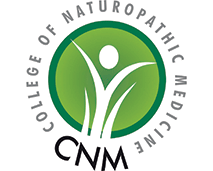
Why is vitamin D important?
by Michelle Sanchez - Naturopath, Nutritionist and Medical Herbalist for CNM College of Naturopathic Medicine.
Vitamin D is known as the ‘sunshine vitamin’, although, it’s not strictly a vitamin (it’s a hormone) as it can be synthesised on the skin when the body is exposed to sunlight. Vitamin D is an essential nutrient for bone and muscle health, the immune system, gut health and blood sugar metabolism.
The body creates vitamin D on the skin when exposed to direct sunlight; the ultraviolet B (UVB) rays from the sun stimulate vitamin-D receptor cells in the skin that trigger a chemical reaction in the body, enabling it to produce vitamin D3.

In Ireland, people can top up their vitamin D levels during spring and summer from late March until late September. Vitamin D levels tend to dip during the winter months due to the darker days and less sunlight exposure.
Experts recommend short bursts of unprotected sun exposure (around 5-10 minutes), a few times per week for fairer skin types, in order to maintain vitamin D levels. For those with darker skin tones, it can take three to six times longer to produce the same amount of vitamin D3 due to their skin pigmentation.
It’s also possible to obtain vitamin D from food sources, although it’s difficult to get enough of it from diet alone. There are two types of vitamin D food sources: D2 (ergocalciferol D2) from plant sources which is found in sun-exposed mushrooms and D3 (cholecalciferol D3) from animal sources found in cod liver oil, oily fish and egg yolks.
CNM trains successful practitioners in a range of natural therapies. Voted Best College/University in the 2021 IHCAN Education Awards.
Learn more at: naturopathy.ie
Read the latest news and tips from Rude Health Magazine here...